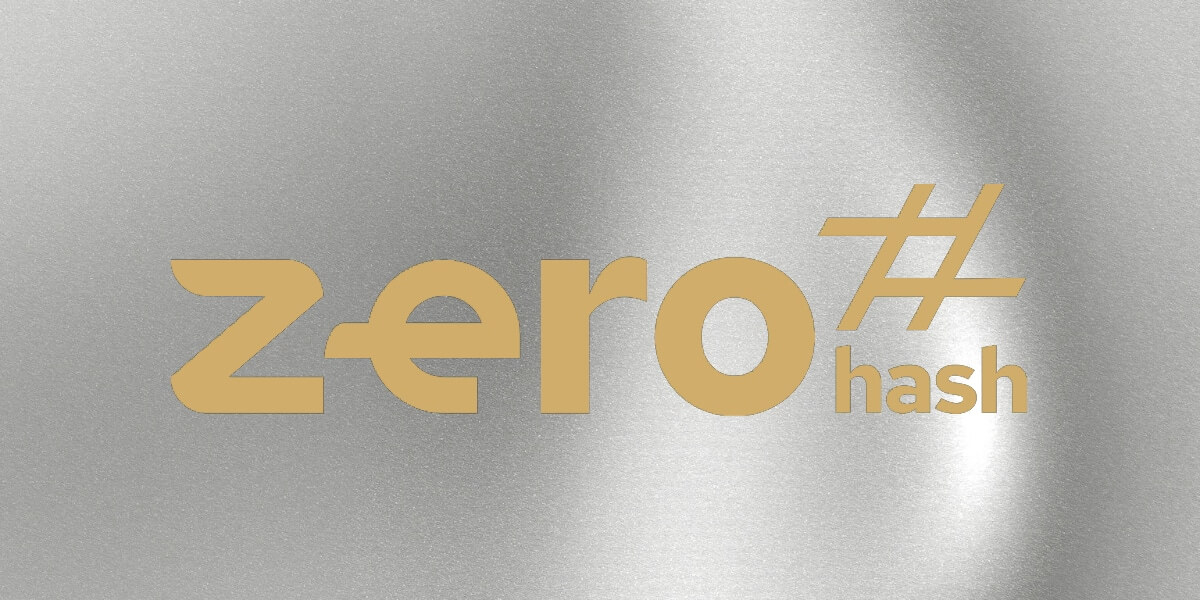
What Is Zero Hash?
Are you familiar with Zero Hash?
It is a back-office infrastructure provider. It offers a B2B2C crypto-as-a-service infrastructure to front-end platforms.
What’s interesting, it offers services via Application Programming Interface (API) that can then be enabled by the front-end platform.
It is worth noting that customers sign a Zero Hash user agreement.
Someone unfamiliar with Zero Hash may ask, “ How are my assets secured?”
People have the right to know how a company protects their money.
For example, In the United States, Zero Hash provides its custodial services through Zero Hash LLC and its liquidity services through Zero Hash Liquidity Services LLC.
Zero Hash LLC, as well as Zero Hash Liquidity Services LLC, are New York BitLicensed entities, and all assets are held at Zero Hash LLC.
As a reminder, Zero Hash LLC is registered to operate in 51 US jurisdictions.
We should also mention that all customer assets are held 1:1. Importantly, Zero Hash isn’t able to move, encumber, or pool client funds without client direction.
What’s important is that assets are held in a combination of hot and cold storage. As you can see, Zero Hash is ready to do whatever it takes to protect clients’ assets.
In accordance with best industry practices, the above-mentioned back-office infrastructure provider doesn’t commingle its assets with customer assets.
Cold storage and hot storage

It is a good idea to learn as much as possible about cryptocurrencies. Let’s get started!
It is vital to differentiate between various terms. For example, cold storage and hot storage.
Cold storage and hot storage are terms used in the context of cryptocurrency to describe different methods of storing and managing digital assets.
Cold storage refers to the practice of storing cryptocurrencies offline, disconnected from the internet. This method is considered highly secure because it reduces the risk of online attacks or hacking attempts.
It is typically achieved through the use of hardware wallets, paper wallets, or other offline storage devices. By keeping the private keys offline, cold storage provides an additional layer of protection against potential cyber threats. It is especially recommended for long-term storage of significant amounts of cryptocurrency.
Hot storage, in contrast, refers to storing cryptocurrencies in online wallets or other digital platforms that are connected to the Internet. This type of storage is more convenient for frequent transactions and immediate access to funds.
It is worth noting that hot storage can include software wallets on devices connected to the internet or custodial wallets provided by cryptocurrency exchanges. While hot storage offers convenience, it isn’t as secure as cold storage due to the potential vulnerability to online attacks.
Both cold storage and hot storage have their advantages and considerations:
Cold storage provides high security but may be less convenient for regular transactions or quick access to funds.
Hot storage offers greater accessibility and convenience but carries a higher risk of security breaches if not properly protected.
Many individuals and organizations choose to employ a combination of both storage methods. It is important to find a balance between security and accessibility.
What makes the crypto market so interesting?

Apart from Zero Hash, there are many crypto-related companies.
It is a great idea to gather more information about the cryptocurrency market. So, let’s take a look at a number of interesting facts about the crypto market.
Here are some interesting facts about the crypto market:
Bitcoin dominance: Bitcoin is the first and most well-known cryptocurrency. It is the largest cryptocurrency when it comes to market capitalization.
However, there are many other cryptocurrencies as well.
Market volatility: Cryptocurrencies can experience significant price fluctuations within short periods of time, leading to both substantial gains and losses for investors.
This volatility is influenced by various factors, including market sentiment, regulatory developments, technological advancements, and macroeconomic conditions.
Altcoin diversity: Bitcoin may be the most well-known cryptocurrency, but there is a vast array of other cryptocurrencies, often referred to as altcoins (alternative coins). These include Ethereum, Ripple, Litecoin, Cardano, and many others.
Each altcoin often has unique features, use cases, and blockchain technologies. The diversity of altcoins provides investors and users with various options and opportunities within the crypto market.
Institutional adoption: The cryptocurrency market has witnessed increased institutional adoption in recent years. Large financial institutions, including banks, asset management firms, and hedge funds, have started to explore and invest in cryptocurrencies.
Decentralized Finance (DeFi) and crypto

We can’t forget the role and importance of Decentralized Finance, or DeFi.
DeFi refers to a range of financial applications and platforms built on blockchain networks that aim to provide traditional financial services.
One of the key importance of DeFi lies in its ability to promote financial inclusion. Traditional financial systems have left billions of people around the world without access to basic financial services.
DeFi enables anyone with an internet connection to participate in a wide array of financial activities.
DeFi also promotes transparency and security. Transactions and contracts in DeFi are recorded on the blockchain, ensuring transparency and immutability.
This reduces the risk of fraud and manipulation compared to traditional financial systems, where centralized authorities can be susceptible to corruption or data breaches.
Another significant aspect of DeFi is its potential for creating new economic opportunities. By eliminating intermediaries and reducing barriers to entry, DeFi opens up avenues for individuals to participate in lending and investment markets.
This can democratize access to capital and empower individuals to grow their wealth through decentralized protocols.
Regulators and cryptocurrencies
Regulatory developments: There is no uniform approach when it comes to the cryptocurrency market and regulations.
The regulatory landscape is still evolving, and different jurisdictions have adopted various approaches, ranging from embracing cryptocurrencies to implementing stricter regulations. Regulatory developments can significantly impact the crypto market, influencing investor sentiment and market dynamics.
Please note that the crypto market is highly dynamic and subject to constant change. It’s essential to stay updated with the latest news, trends, and developments in the industry.




